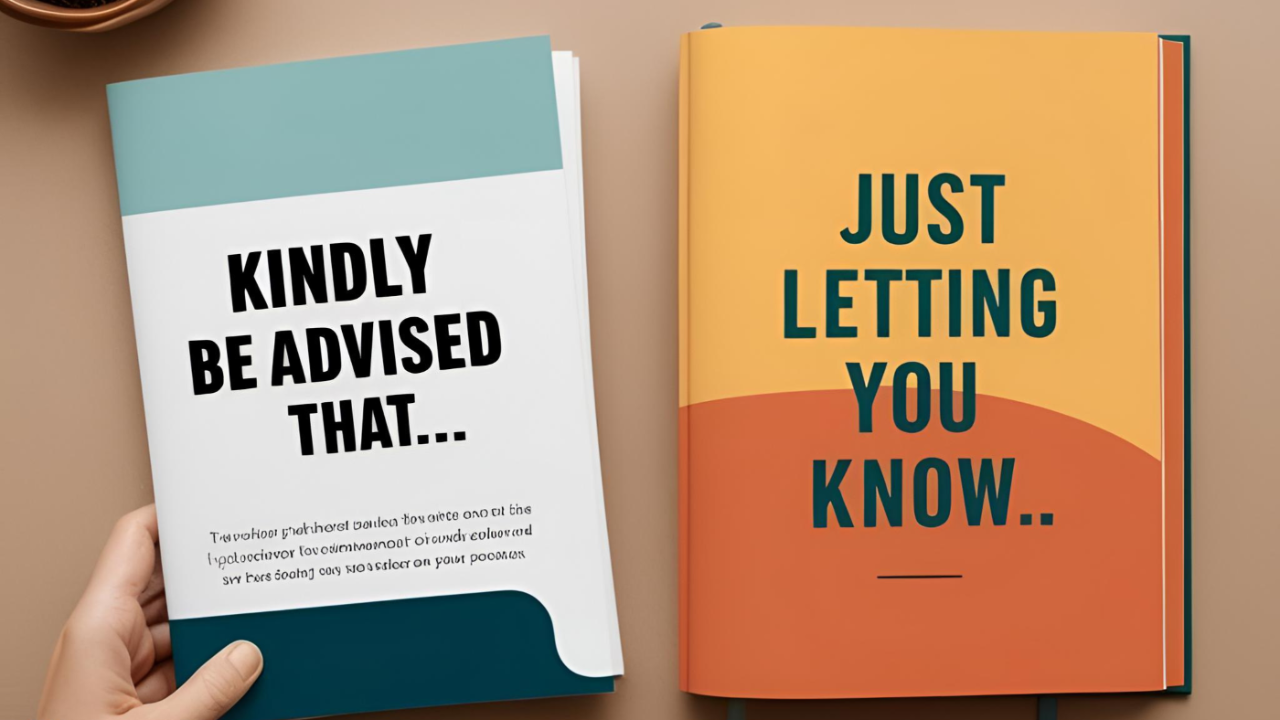Want to be Remembered? Speak Like a Book — Not a Brochure
Apr 29, 2025
You're not here to sound professional. You're here to be remembered.
When you write an email, do you sound like a human — or a brochure?
You know the kind:
“Kindly be advised that the below-mentioned item will be dispatched accordingly.”
If you've ever written something like that (no judgement — we’ve all been there), you might be stuck in what I call brochure-speak.
It’s polished.
It’s formal.
It’s also forgettable.
And that’s the real issue: brochure-speak builds walls when you’re trying to build a connection.
What makes brochure-speak so problematic?
It might sound “professional,” but it actually:
- distances you from your reader
- comes across as cold or robotic
- makes simple things feel unnecessarily complex.
In a world where clarity and connection matter more than ever, that kind of language creates friction — not flow.
As Tony Robbins puts it:
“Information without emotion is not retained.”
And Seth Godin echoes it perfectly:
“People don’t want more information. They want connection, trust and forward motion.”
That’s the heartbeat of powerful communication: emotion meets intention.
Because if your message is being read but not remembered… what’s the point?
Books do it better
Books don’t talk at you. They pull you in.
They use rhythm, voice and tone to speak to you like a human. They make you feel seen. That’s what makes them stick.
Your emails, reports and proposals can do the same, even if English isn’t your first language.
You don’t need big words or complicated sentences. You need realness, warmth and precision.
3 Ways to speak like a book (Not a brochure)
Here are three small shifts that can instantly elevate your communication:
1. Use first-person
“I recommend…” instead of “It is recommended…”
Using “I” and “we” makes your writing feel personal and grounded, like it’s coming from someone, not a system.
2. Choose verbs over nouns
“Let’s decide” instead of “A decision must be made.”
Verbs bring movement. They create momentum and make your message feel alive.
3. Use warmth and rhythm
“Here’s what I suggest” instead of “Please find below…"
If your writing flows like a conversation, people will want to keep reading.
Ready to drop the robot voice?
I’ve created a one-page guide to help you write in a way that sounds more human, more confident and far more memorable.
Inside, you’ll find:
- 14 real examples of brochure-speak with human alternatives
- Clean, professional language that still sounds like you
- A quick-reference tool you can use any time you’re writing.
📥 Grab the guide here and start using language that builds trust and leaves the right impression.
Because the right words don’t just inform.
They connect.
They move people.
They change minds and open doors.
